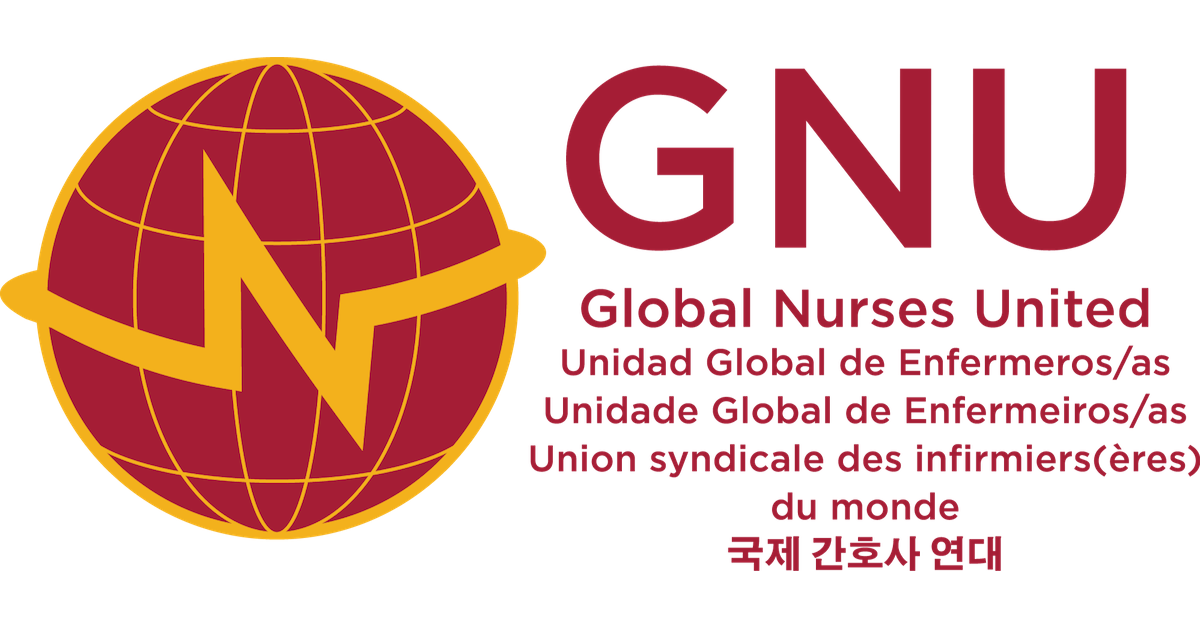Press Release
Leaders of 22 Global Nurses Unions Call on Japan and IOC to Postpone or Cancel Olympics Amid Pandemic Spread

With the global Covid-19 pandemic continuing to rage across the world, and a new state of emergency declared for Tokyo, leaders of 22 unions representing nurses and other health care workers in 21 countries, today called on the government of Japan and the International Olympics Committee to shut down the Tokyo Olympic Games scheduled to begin later this month.
Infections, hospitalizations, and deaths have been escalating in many countries around the world, including Japan, especially now with the rapid spread of the more transmissible Delta variant to more than 100 countries. Notably, even a number of nations that have relaxed safety measures have in recent weeks and days been hastily reimposing safety mandates and other emergency measures.
“As representatives of nurses and other health care workers on every continent around the world, we urge you to cancel or postpone the Tokyo Olympics to protect the health and safety of the residents of Japan, the thousands of athletes, and support personnel from the participating nations, and the residents of their home countries upon their return home,” wrote leaders of Global Nurses United (GNU) to Japanese Prime Minister Yoshihide Suga and IOC President Thomas Bach.
GNU signatories of the letter included nurse union leaders of Japan and the United States, as well as Australia, Brazil, Canada, Costa Rica, the Dominican Republic, Greece, Guatemala, Honduras, India, Italy, Malawi, Peru, the Philippines, Portugal, Rwanda, South Korea, Sri Lanka, Taiwan, and Uruguay, giving the appeal representation from medical professionals on every continent. The letter may be viewed here.
“With the explosion of the Delta variant and other strains, and more than 10,000 athletes, plus thousands of coaches, staff members, and journalists attending the Games, the threat of the Olympics becoming a major super spreader event seems almost inevitable,” said Deborah Burger, RN, President of National Nurses United, the largest U.S. union of registered nurses.
In Japan there is growing opposition to proceeding with the Games from medical professionals and the general public, the GNU letter notes. The Tokyo Metropolitan Government has warned that “the increase in the movement of people and the effects of variants, a rapid resurgence in infections is feared (with) the risk that health care systems will be strained due to an increase in new positive cases.” On Wednesday, Tokyo reported 920 new cases, the highest total since May 13.
The Japan Federation of Medical Workers, a signer to the letter, has expressed alarm over a severe impact on the Japanese health care system bordering on “medical collapse” and called on the government of Japan to “cancel or reschedule the Tokyo Olympics.” In a public statement June 10, the union emphasized the public danger noting, “if the government prioritizes holding the Olympics over protecting the lives of the people, there is a strong fear that it will cause another spread of infection.”
Among other concerns the GNU has raised:
- While advances in reducing the infection rate due to rates of vaccination have been made in some more developed nations, most of the world’s population remains unvaccinated, and this is extremely dangerous as the virus continues to spread. To date, 85 percent of all shots have been administered in high and upper middle-income countries compared to only 0.3 percent to residents of low-income nations.
- The risk of infection spread from the Games is likely to have a disproportionate impact on global south countries that have had less access to the vaccines — in large part due to inflated pharmaceutical pricing practices and the blocking by some wealthy nations for a waiver on intellectual property protections for vaccines, as the GNU has supported.
- As the GNU noted in its letter “the inevitable result will be that if the Games do proceed, the danger of exacerbating the number of deaths, hospitalizations, and infections, especially in lower income countries from personnel returning from the Games is extremely high, further exacerbating the already extreme disparity between wealthier and lower income nations.
- The threat to the population of the host country Japan, where only some 14 percent of the people are fully vaccinated. Medical resources are increasingly strained now and could be overwhelmed in the event of a severe outbreak during the Games, which would also pull critical medical personnel away from hospitals and other patient care areas of the country where they are needed.
- The International Olympic Committee’s Playbook for Athletes and Officials on safety precautions for the Games does not fully address ventilation and air flow and filtration in shared areas such as dormitories and eating areas or in areas for competition, as well as other optimal safety measures, the GNU letter stated.